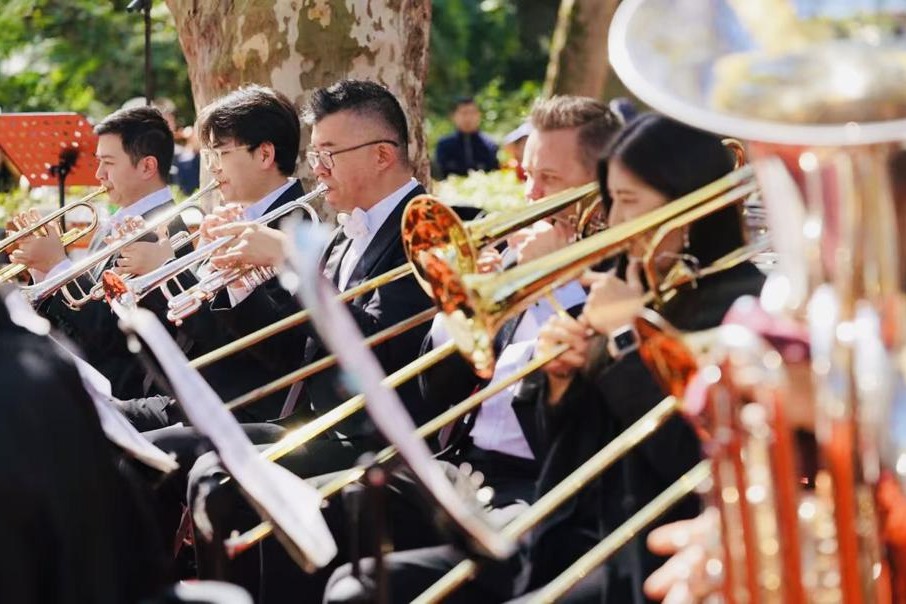Joint conservation of rare bird pays off

Japan transferred on Thursday 16 locally born Asian crested ibis to China, honoring an agreement between the two countries to advance conservation efforts to reduce the extinction risk of the avian species.
This is the first such return of the internationally protected birds in eight years.
According to Japan's Ministry of Environment, the transferred birds — nine females and seven males — were born at a conservation center on Sado Island in Niigata prefecture between 2016 and 2022, China Central Television reported.
In 1999, when the crested ibis was on the brink of extinction in Japan, China gifted two birds — named Yang Yang and You You — to help its neighbor to artificially breed the species in Sado, said China's National Forestry and Grassland Administration. Five more birds were sent from China to Japan in three exchanges in 2000, 2007 and 2018.
As of 2023, Japan's crested ibis count in the wild was estimated to be 532, Japanese media reported, quoting the country's Ministry of Environment. Japan has downgraded the status of the crested ibis from "extinct in the wild" to "critically endangered 1A".
According to a memorandum of understanding signed between the two nations, Japan is required to return half of its artificially bred crested ibis offspring to China. Between 2002 and 2016, a total of 47 birds were sent to China in seven exchanges, Japanese media reported.
The Asian crested ibis (Nipponia nippon) was once widely distributed across East Asia. However, by the 20th century, the species had almost disappeared from the Korean Peninsula and Japan.
In 1981, seven of these birds were spotted in the Qinling Mountains in Northwest China's Shaanxi province, sparking hopes of saving the species from extinction in the wild.
Currently, the total population of the Asian crested ibis is more than 10,000, with all the birds being offspring of the seven found in Shaanxi, according to the Hanzhong Crested Ibis National Nature Reserve in Shaanxi.
This incredible achievement made the efforts to protect the crested ibis a "successful model for saving endangered species worldwide", the nature reserve said.
Zhang Yueming, a senior engineer at the reserve, said that from 1991 to 2000, the number of crested ibis nesting sites in the wild continued to increase, reaching 18 by 2000, with the population surpassing 100.
Zhang, who has worked for the conservation of the species for over 30 years, said he has witnessed a steady improvement in the ecological quality of the Qinling Mountains, with continuous breakthroughs in the artificial breeding of and reintroduction techniques for the crested ibis.
In 2007, China achieved the world's first successful reintroduction of the crested ibis into the wild in Ningshan county, Shaanxi, where 26 of these birds were released. Their offspring made up the world's first reintroduced crested ibis population.
Apart from Japan, China has gifted its crested ibis to South Korea — in 2008 and 2013. Over 500 birds have been successfully hatched and raised at a restoration center in that country.
Through collaborative breeding and research efforts among China, Japan and South Korea, the crested ibis has been successfully reintroduced into the wild in all three countries, said China's National Forestry and Grassland Administration.
Jiang Xueqing in Tokyo contributed to this story.
- Joint conservation of rare bird pays off
- Ten photos from across China: Oct 25 - 31
- Highlights of Shenzhou XVIII mission in images
- Cross-Strait media representatives gather in Beijing to discuss integrated development
- 'Zhenghe Cup' Sino-German youth innovation, entrepreneurship competition concludes in Taicang
- Emergency response launched in Shanghai as typhoon approaches



































